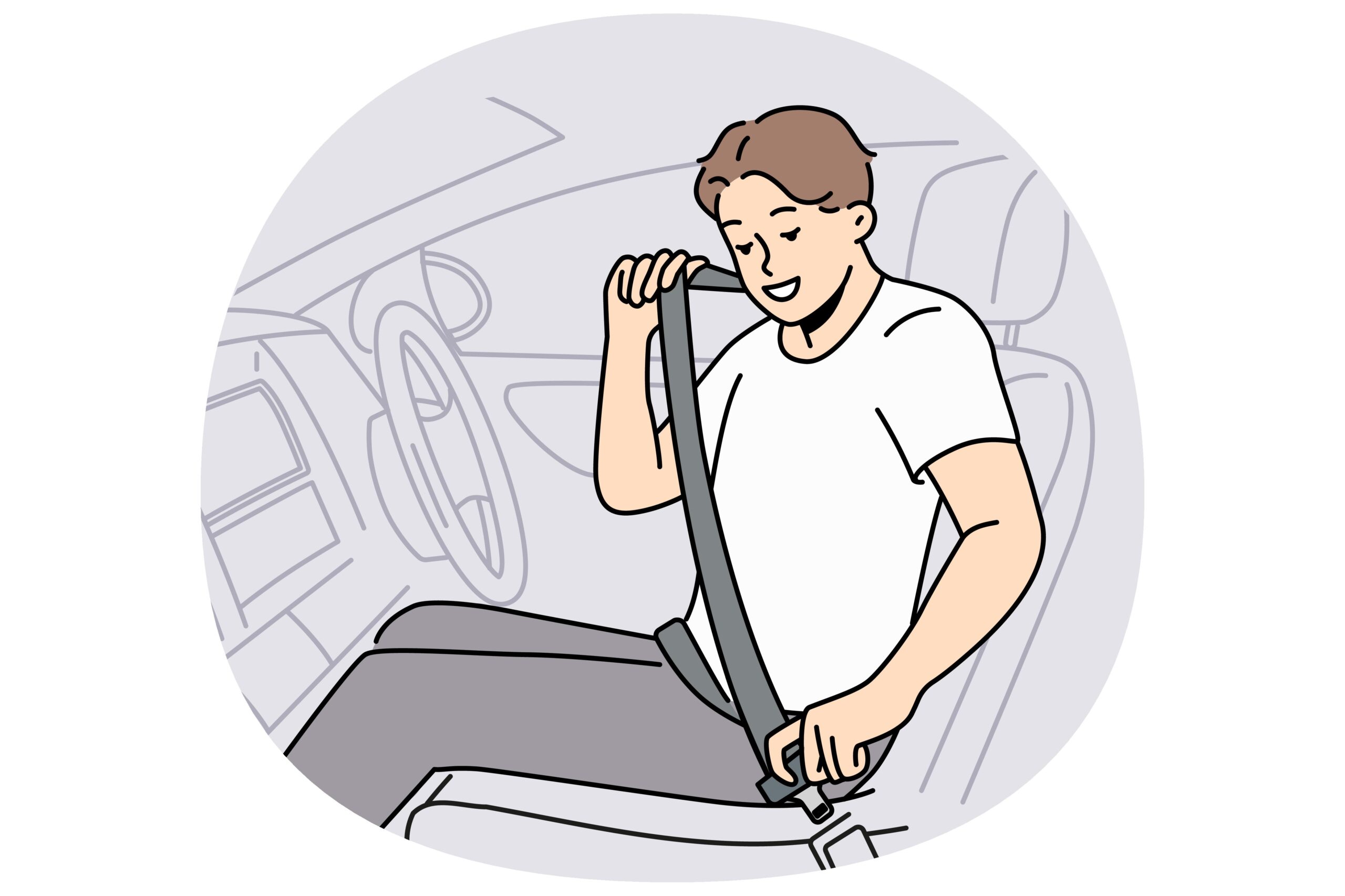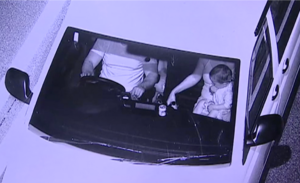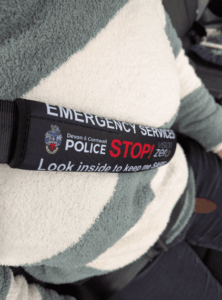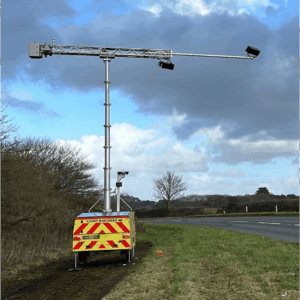New analysis by The AA Charitable Trust shows almost half (43%) of young passengers (17-29) who die in car crashes are not belted.
Wearing a seatbelt reduces the risk of death by around 50 per cent, meaning up to around one quarter of all young car passenger deaths could be avoided if all young passengers put their belts on.
When the data*, provided exclusively to the AA Charitable Trust, is analysed across all ages, unbelted fatalities fall to 27% of car passengers, highlighting the disproportionate number of young passengers being killed when not wearing their seatbelt.
Young, male car passengers are more likely to die unbelted in a car crash than their female peers. The research, based on five years of car crash data where seatbelt wearing status was known, shows 68% of young passengers who die unbelted are male. These crashes are also more likely to happen at night, with 74% of young, unbelted, passenger fatalities happening in the night or evening.
New Department for Transport data shows the rate of seatbelt non-wearing fatalities for car occupants is highest for rear seat passengers (40%). Weekends also show the highest rates of non-seatbelt wearing among car fatalities (28% Saturday; 30% Sunday).**
Drivers
As drivers, young people are also needlessly dying due to not wearing their seatbelt. The AA Trust analysis shows one third (29%) of young drivers (17-29) who die in car crashes are not belted. Staggeringly, 95% of these are male.
Overall, 32% of drivers who died unbelted were aged 17-29, despite this age group only accounting for around 14% of driving licences***.
The AA Charitable Trust has carried out the analysis to mark the start of a new focus on the importance of wearing a seatbelt, particularly among young people.
Attitudinal research
Additional research, commissioned exclusively by the AA Trust****, into attitudes to wearing seatbelts among new and learner drivers shows:14% say they are less likely to wear a seatbelt on a short journey as a passenger24% of young drivers said they had driven while their passengers were not belted up17% said they have driven without a seatbelt on11.6% of young drivers say they are less likely to wear a seatbelt as a passenger in the backseat.7.6% said they are less likely to wear a seatbelt on a short journey as a driver;
AA/Yonder polling***** of qualified drivers shows one in twenty (5%) of drivers would take their seatbelt off to change clothes and a small, but significant, minority (2%) would remove their seatbelt to change seats in a moving vehicle.
The AA Charitable Trust has launched a new Seatbelts Factsheet
The AA Charitable Trust recently called for six penalty points for new drivers caught not wearing their seatbelts, under a raft of proposed measures to improve new driver safety.
There also needs to be a continued focus on the importance of seatbelt wearing to help reduce the number of people needlessly killed every year.
Edmund King, Director of the AA Charitable Trust, said: “Wearing a seatbelt is the single most effective way to protect yourself, and others in the car with you, from death and serious injury.
“It is an utter tragedy that young people are dying as passengers and drivers because they have failed to put their seatbelt on.
“This research marks the start of a renewed focus from the AA Trust on the simple importance of wearing a seatbelt. We hope our calls will unite others from across the road safety network, including driving schools, to ensure the message reaches the young people most at risk.
“Our message to young passengers is clear – belt up in the back – it could save your life, and the lives of others in the car with you.”
Future of Roads Minister Lilian Greenwood said: “This stark data highlights a preventable tragedy. Far too many young lives are being cut short simply because seatbelts aren’t being worn.
“We’re committed to working alongside road safety organisations and through initiatives like our THINK! ‘CLICK’ campaign, which reminds young people of the life-saving importance of them and their friends belting up whatever the journey. A simple ‘CLICK’ can save lives.”
The Trust has also issued case studies about young people losing their lives when being involved in crashes while not wearing a seatbelt.
Case study: Phoebe Johnson
Phoebe Johnson, from Swadlincote, was days away from her 18th birthday when she died in a car crash as a passenger in October 2021. The driver and a front seat passenger both survived the crash but Phoebe, who was in the back and not wearing her seatbelt, passed away as a result of her injuries.
Phoebe’s mother, Nicky Johnson, describes what happened:
“Phoebe was spirited and kind, she loved her family and friends and was doing well at college. It was her time.
“I dropped her off at a friend’s house where they were house sitting about 15 miles away from home. I had arranged to pick her up at 9:30am the next morning, but the next time I saw her was in the hospital.
“Me and my husband were woken at midnight that night to the sound of a siren, blue lights and a banging on our front door.
“Two police officers told us Phoebe had been in a car crash and was very ill in hospital. They drove us to the hospital where we received the devastating news that Phoebe had suffered catastrophic head and neck injuries and there was nothing they could do to reverse any damage. Phoebe passed away at 5.10am on Saturday 23 October 2021.
“It turns out the 19-year-old driver of the car had been drinking all afternoon. There was no need for them to go for a drive – it was a drive for the sake of driving.
“The driver, who received a three year custodial sentence for causing death by careless driving, overtook another vehicle and then lost control on a bend on the dark country lane they were travelling on.
“The other two people in the car with Phoebe, who were wearing seatbelts, survived. We want to support this campaign to help ensure people understand the importance of wearing a seatbelt and, hopefully, prevent other families going through a similar tragedy.”
Case study: Josh Longman
Josh Longman died in a car crash on November 29th, 2023, just a few weeks after celebrating his 20th birthday.
On the morning of the collision, Josh was leaving for work as an apprentice boat builder in Hythe, Southampton.
His mother, Kelly Longman, talks about Josh and describes what happened:
“Josh was my eldest son. He was hard working, cheeky and mischievous, generous, kind, loyal and extremely funny. He loved life. Loved working and being independent. Loved his friends. If someone needed help, he would be there. He loved his brother and sister. His dad died in 2019, so for 4 years before his death, we were a very close unit of four. He was looking forward to finishing his apprenticeship in the summer of 2025 and travelling around Europe with a friend.
“Despite being known to wear his seatbelt, on this occasion he found it jammed and drove to work without wearing it.
“On his commute, his car collided with a van travelling in the opposite direction. Josh suffered fatal injuries and was pronounced dead at the scene.
“Although we won’t know the full details of what happened until the inquest into his death, we do know that without his seatbelt on, Josh had no chance of survival. If only he had called friends and asked for help getting to work that morning, he would still be with us.
“His death has absolutely shattered us. We will never be the same. We are devastated and I shall miss him for the rest of my life.
“If his story can help make anyone think about the importance of using a seatbelt, it would give me small comfort.”
























